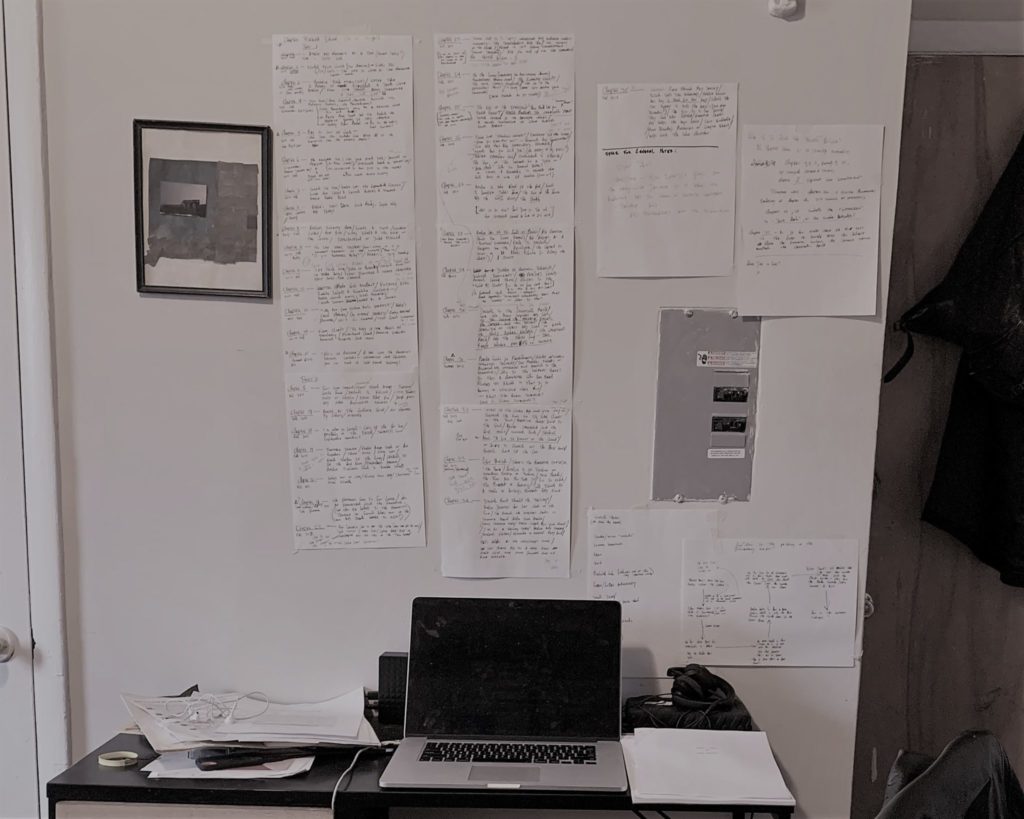Since I first began writing during the computer age, I don’t have a felt sense of the difference in composing work on a typewriter. However, I do remember learning keyboarding in elementary school, and how liberating an experience writing and editing on a computer was. As a child, I struggled with spelling, and poor handwriting. I felt less judged handing in typed up papers that were identical looking to my classmates. Once my typing speed improved, I also experienced that typing could more quickly transfer my thought process on the page than handwriting (I never learned to adequately write in shorthand). On a computer, I could also transfer incongruous thoughts as they bubbled up and organize them later on. In this way, I relate to poet Kamau Brathewait’s statement, “The computer is getting as close as you can to the spoken word” (Kirschenbaum, 199). Typing quickly while in a creative, inspired mindset feels similar (although not as un-mediated an experience) to picking up a musical instrument and communicating some non-verbal feeling or affect. However, when writing more structured essays, word processing technology can create problems.
Lately, I worry that my writing is becoming increasingly fragmented as a result of overwriting individual sentences. I sometimes labor over individual words or sections so much (typing and re-typing), that I interrupt the flow of the piece as a whole. Maybe there’s some truth to the fear that word processing software encourages “overwriting” (a concern that, according to Kirschenbaum, was common in the early years of computer technology). The problem is compounded by the fact that writers today work on computers with numerous web connected applications and research tools at their fingertips. These can be helpful, but I’ve found sometimes these tools overwhelm me with data and with other writer’s voices. Automated text editors like Grammarly further complicate the process and increase one’s anxiety as a writer (i.e. There’s an objectively “correct” way to write that’s and technologically vetted).

To escape this data-overload, I often find myself printing out sections of a manuscript, organizing pages spatially, and even cutting up paragraphs and moving them around physically on the desk. Maybe I do this to regain some tactile feeling of my writing – so it’s not all in my computer/mind.


